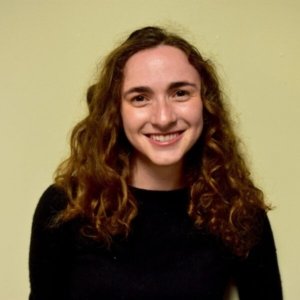How to Learn About Cancer in a Classroom: Shaping Compassionate Doctors

Marin Langlieb
Clinical Research Coordinator at Massachusetts General Hospital
The patients and caregivers we serve here at Cancer Commons rely on their doctors to provide expert, compassionate care. Building the skills to give such care can begin early in a doctor’s education. Here, for a change of pace, our Curious Dr. George asks a future doctor about a unique experience that helped her learn how to connect with cancer patients. Marin Langlieb is a Clinical Research Coordinator at Massachusetts General Hospital in Boston, Massachusetts.
Curious Dr. George: As a recent college graduate in pre-med now working in Boston in research, and as a student interacting with cancer patients, how would you rate your educational experience in preparation for medical school and for a lifetime of work as a physician?
Marin Langlieb: The answer to this question lies in a seminar I took as an undergrad that exemplifies why teaching both the sciences and the humanities to pre-meds is so critical.
After losing my pediatrician to cancer during college, I knew that I wanted to understand more about the disease. From a scientific perspective, my pre-med classes prepared me very well. In biology, it seemed like every semester I had a lecture about p53, a protein that regulates the cell cycle to prevent unregulated cell division. Yet, although I knew all this information about cancer at the micro-scale, I still wanted to understand cancer in the context of real human experiences. In other words, what was it like to actually live with cancer?
At most universities this is a topic that is probably not taught in a classroom. But my junior year, I enrolled in a seminar course called “Community Based Cancer Research Presentations and Discussions” that was part of a broader partnership between cancer researchers at my university and the local cancer resource center. Each class we would have lectures from people with a wide variety of science and humanities backgrounds—such as communication professors, physicians, ethicists, and community participants who were cancer patients themselves—all on cancer-related topics.
The lectures were extremely interesting (for example, one was on the importance of patient advocacy from “Congress to the Bedside”), but the primary goal of this unique program was the connections it fostered. For the scientists, who were researching cancer with cells or mice, it helped connect them to those who would be most affected by their work. For the community participants, they told me they joined the class because they wanted to better understand and communicate the science behind their disease. For example, many of the people I talked to wanted to be able to read complex scientific literature and understand some of the treatments they were receiving. Even more so, they stated that understanding the mechanisms and pathways behind their disease helped give them a sense of reassurance—people actually understood some of what was happening inside their body.
I think my pre-med classes did prepare me for a future career in medicine, although opportunities that connect students and members of the community are critical. For example, this class taught me how to actually apply what I was learning in my science classes to scenarios I might experience as a physician. That is, speaking with the community members taught me that being a good physician goes beyond using science solely to treat patients, but also to help patients clearly understand their diagnosis, their treatment, and their disease. In addition, learning how to communicate science effectively has been crucial to my current work in clinical research, from conducting informed consents to helping write grants.
However, the most important thing the class did was introduce me to some of the kindest people I have ever met. Even now, they push me to study harder, think bigger, and realize just how much of an incredible privilege a career in medicine is.
Marin Langlieb can be reached at mlanglieb@mgh.harvard.edu.




